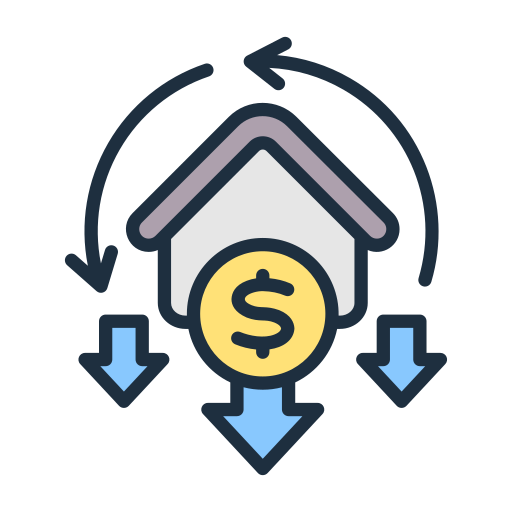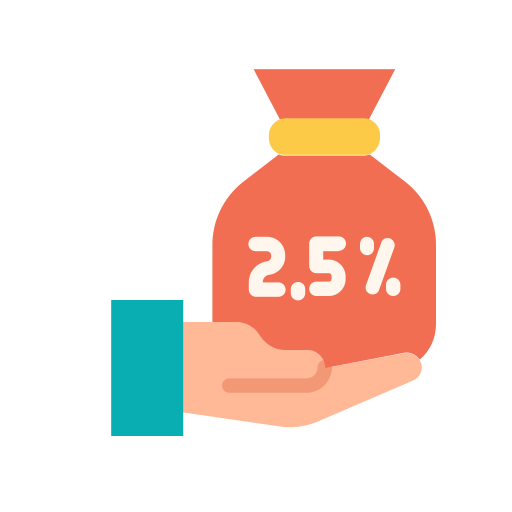Unlock Your Property’s Potential Today!
Unlock the Value of Your Property with Attractive Loan Against Property
Turn your property into a powerful financial tool with Money Solution. Apply now and unlock the value of your property!

Essential Attributes of Loan Against Property Quick Approval Process

Quick Approval Process
Our streamlined approval process ensures you receive your loan quickly, giving you access to funds when you need them most.

Competitive Interest Rates
Benefit from low-interest rates, making your Loan Against Property affordable and easy to manage.

Minimal Documentation Required
Enjoy a hassle-free application experience with minimal paperwork, ensuring a smooth and stress-free process.

Flexible Repayment Options
Customize your repayment plan to suit your financial needs, ensuring manageable monthly payments.
EMI Calculator
Loan EMI
Total Interest Payable
Total Payment
(Principal + Interest)

Apply for a Money Solution Personal Loan
- Step 1: Check Eligibility
- Step 2: Submit Application
- Step 3: Receive Funds





Empowering Your Dreams
Understanding Personal Loans: Your Guide to Borrowing Responsibly
Leverage the value of your property and achieve your financial goals with a Money Solution Loan Against Property. Whether it’s for business expansion, education, or any other personal needs, we are here to support you. Do you own a property and need funds for personal or business purposes? A Loan Against Property (LAP) from Money Solution can be the perfect solution, providing access to substantial funds at competitive interest rates..
Customer-Focused Service
Competitive Interest Rates
Efficient Processing
Flexible Repayment Options
Choose from a range of flexible repayment plans tailored to suit your financial needs.
Competitive Interest Rates
Benefit from competitive interest rates that save you money over the life of your loan.
Personalized Customer Service
Access personalized support from our dedicated team to guide you through every step of your loan journey.

Why Choose Us
Reasons to Choose a Loan Against Property
Essential Requirements for Quick Personal Loan Approval
Essential Documents Needed for Personal Loan
Frequently Asked Questions
A Loan against Property is a mortgage loan provided by banks and financial institutions for personal as well as business purposes.
In the real estate and housing finance market today, we regularly come across the term “Home Loan Against Property”. Loan against property is nothing but a loan which you avail by keeping your commercial/residential property as a collateral. Another name for Loan against property is a secured loan. The security in this kind of loan is the property owned by the person applying for the loan. The value of your property decides the amount of potential loan you will be sanctioned.
A Loan against Property can be availed for a variety of purposes ranging from home renovation to purchase of machinery as well as to meet the shortfall of working capital. It is a safe proposition for the banks because they have collateral of the property as support for the finance they provide.
Salaried people opt for mortgage loans to cater to expenses like the educational needs of their children, medical expenses, home renovation, and so on. Business enterprises prefer the Loan against Property as collateral towards Business Loans and for procuring working capital requirements.
A Loan against Property is easy to procure because it is secured in nature. Banks usually maintain a margin while sanctioning a Loan against Property. This margin usually ranges from 50-90% of the value of the property (also known as LTV or Loan-to-Value). This facility is also popular because the borrower can utilize the property in spite of mortgaging it in favour of the bank.
The difference between a Loan against Property and a Personal Loan is that can take a Personal Loan without providing collateral. However, a Loan against Property requires you to mortgage your property to the lender.
Another significant difference is the rate of interest on a Loan against Property is less than the rate of interest on a Personal Loan. It is primarily because of the security available to the bank. Banks have the option of selling the security and recovering their dues in case of default on the part of the borrower.
There are various types of Loan against Property. While it can be confusing for a first-time borrower, Money Solution can help you through the entire process. Explore the possibilities with Money Solution and seal the deal!
1. Business Expansion Loans – Business entities can avail this facility for acquiring new machinery, purchase of plant, meeting working capital requirements, and invest in new technology or business. The lending banks require collateral in the form of property, residential, commercial, or industrial. Depending on the nature of the property available as collateral, the lending banks calculate the loan eligibility. For commercial properties, the LTV is around 55- 65%. In the case of industrial properties, the LTV reduces to 40-55% whereas the LTV in the case of residential property is in the range of 65-70%.
2. Working Capital Overdraft Facility – Banks sanction overdraft facilities against the property for meeting the day-to-day working capital requirements. Under such circumstances, the property is accepted as collateral. Lending banks estimate the amount of finance required based on the following figures:
Property value and nature of the property
Actual working capital requirement calculated as per the internal policies of the bank, usually the Projected Annual Turnover method.
3. Personal Expenses – Individuals can also avail Loan against the Property for personal expenses such as medical expenses, educational expenses, marriages, travel, as well as for purchasing consumer durables.
4. Home Renovation – Usually, people do not avail this loan for renovating homes as there are separate schemes available at comparatively lower rates of interest. However, there can be circumstances when the borrower might have to resort to avail a Loan against Property for home renovation.
5. Lease Rental Discounting – Some banks offer loans against the future rent receivables, especially in metropolitan and urban areas. One should note that the property that fetches the rent should also be mortgaged in favour of the bank. Banks usually finance in the range of 75% to 90% of the future lease/rent receivables. The tenure of such loans is shorter and should end before the expiry of the lease or the rental
Current income – In the case of salaried employees, the furnishing of the salary slips for the last three months and a bank account statement for the previous six months is necessary. In the case of self-employed professionals or business entities, financial statements like Balance sheets and Profit &Loss; statements are required. One should supplement these financial statements with the bank statements to enable the banks to co-relate them.
Continuity of Employment – A letter from their employer that the proposed borrower is employed with them should suffice. You should supplement this information with Form 16, and IT returns for the past two years. Self-employed and business concerns can submit proof of doing business like GST registration certificates, partnership deeds, and Certificate of Incorporation (for companies).
Current Obligations – The take-home pay norms come into effect. Usually, one should have a take-home pay of 50% after accounting for all the EMIs including the proposed one for the Loan against Property. Hence, it is imperative for the borrowers to declare their current obligations.
Credit History – The lending banks are members of CIBIL (Credit Information Bureau (India) Limited). They can pull out the records from CIBIL to determine your credit score. Usually, a credit score in the range of 600 and above is acceptable.
Value of the Property – Your eligibility depends on the value of the property. The LTV ratio is in the region of 40-70% depending on the location of your property.
Legal Scrutiny Report – Banks have panel advocates to carry out the search of the property in the respective Sub-Registrar office to determine the chain of ownership. This process also enables them to determine if there are any encumbrances on the property. This search is critical as it allows the banks to understand whether you have the eligibility to create the equitable mortgage in favour of the bank.
Age of the Borrower – The minimum age of the borrower should be 21 years at the time of application.
1. Easy to get – LAP is a secured loan. Banks maintain a margin in the range of 50-90% of the value of the property.
2. Longer tenure – Usually banks sanction a LAP between 3 Lakhs to 100 Crores. It is the only loan facility other than the Housing Loan that allows banks to stipulate repayment periods exceeding 10 years. Banks are willing to sanction loans against property with tenures extending up to 15 years.
3. Lower interest rate – In comparison to Personal Loans, LAPs have a lower rate of interest. The reason is the security offered to the banks.
4. Lower EMI – When you have longer tenure and a lower interest rate than Personal Loans, the EMIs are bound to be lower.
5. Flexibility – Various banks have flexible loan products in this category. They are the term loans and overdraft facilities. You do not have this flexibility with Personal Loans.
6. Tax Benefits – You get benefits on the Income Tax front if you avail a LAP for home renovation purposes. Usually, customers go for home renovation loans if they have to carry out repairs to the same property to be mortgaged to the bank. You might carry out repairs to your home but avail a LAP by mortgaging another property. Under such circumstances, you have to prove that the end use of the loan is for carrying out renovations to the property you reside in.
1. KYC – Documents for determining identity, age, and residence proof are needed when applying for a Personal Loan. These documents are:
PAN Card
Aadhar Card
Driving Licence
Voter ID
Passport
Registered Rent Agreement
2. Income Documents – In case you are a salaried employee, you need to furnish the following documents:
Salary slips for the last 6 months
IT Return along with Form 16 for the past two years
Bank Account Statement of previous 3 months that reflects your salary credits and other income
Employment certificate from current employer
In case you are self-employed (professional or business owner), the following documents will suffice:
Financial statements that include Balance Sheet and Profit and Loss Statement
IT Returns for the last 2 years
Proof of continuity of business income such as Bank Account Statement
Evidence of doing business like GST Registration
3. Other Documents- This includes your loan application form.
Upfront fees – Many banks follow the procedure of collecting upfront fees for processing the application. They adjust the fees with the processing fee in case they approve the loan. Remember, this is a non-refundable fee. It is usually in the range of 3,000 to 5,000.
Processing fees – The regular processing fees are in the range of 0.5-1%.
Valuation charges – Normally, these charges are included in the processing fees. But, some banks charge it as a separate entity. These charges are payable to the valuation engineer who determines the value of the property and submits the valuation report to the bank.
Legal Scrutiny charges – Similar to the valuation charges, some banks include these charges in the processing fees. At times, you have to incur these charges separately. It is payable to the advocate who conducts the legal search of the property and submits the Legal Scrutiny Report.
Mortgage Registration charges – Some states in India do not require the registration of the equitable mortgage. It is compulsory in states like Tamil Nadu. You have to incur these charges (0.5% of the loan amount subject to a maximum of 25,000 as stamp duty and 5,100 as equitable mortgage registration charges)
Prepayment charges – Some banks charge prepayment charges to the tune of 2% to 5% of the outstanding loan It depends from bank to bank.
Insurance – Insurance of the property to be mortgaged to the bank is compulsory. Also, some banks have tie-ups with insurance companies who market their products like loan insurance, health insurance, and personal accident coverage. These are optional charges.
You can use the Money Solution EMI calculator to determine your EMI. You get a full chart showing the breakup of principal and interest repayment throughout the entire duration of the loan.
This ratio determines the extent to which banks can finance loan against property. It depends on the location and the type of the property.
Residential Property – 65- 70%
Commercial Property – 55- 65%
Industrial Property – 40-55%
The minimum loan amount is 3 Lakhs and the maximum is 100 Crores depending on the value of the property, your repayment capacity, and loan requirements.
The tenure is usually 7 to 10 years. Some banks even extend the tenure to 15 years under exceptional circumstances.
Many types of mortgage loans exist in the industry, i.e., mortgages, commercial mortgages, and industrial mortgages. Each bank has its product and interest rate. It is tedious to compare the products offered by a range of banks.
Money Solution can help you in this regard. We procure information from various sources and display it on a single screen thereby allowing you to compare a range of products. It helps you make an informed decision. We help you with other aspects of the deal like demographics, income and repaying capacity, and so forth.
At Money Solution, you have access to:
1. The lowest rate of interest – The comparison on the screen allows you to choose the lowest rate on offer.
2. Lowest processing fees – Usually, banks charge processing fees to the extent of 0.50-1%. As there is an involvement of a high amount, processing fees can constitute a significant chunk of your expenses.
3. Easy documentation – The credit team at Money Solution helps in completion of documentation formalities.
4. Higher Loan to Value Ratio (LTV) – The LTV differs from bank to bank. At Money Solution, you will be able to compare the various margin rates and choose the one most suitable for you.
5. Prepayment clauses – These are hidden charges that borrowers usually ignore. It can be in the range of 2-5%. Money Solution helps you compare the prepayment clauses of various banks and help you find the best choice.
6. Transaction charges – LAP requires the creation of an equitable mortgage of property. It can cost you a lot of money ranging from advocate fees, evaluation fees, stamp duty on mortgage registration, and so on. Some banks include the advocate fee and evaluation fee in their processing fee structure whereas some banks charge separately. Money Solution helps you make this distinction and gets the deal most beneficial for you.
Money Solution has specialists who have experience of over 28 years in the field of Loan against Property and can help you:
1. Assess your demographic and personal profile
2. Examine your previous repayment record
3. Understand the various terms used by bankers such as Legal Scrutiny Report (LSR), and the other policies of the banks in connection with Loans against Property
4. Understand the fine print that people frequently overlook






